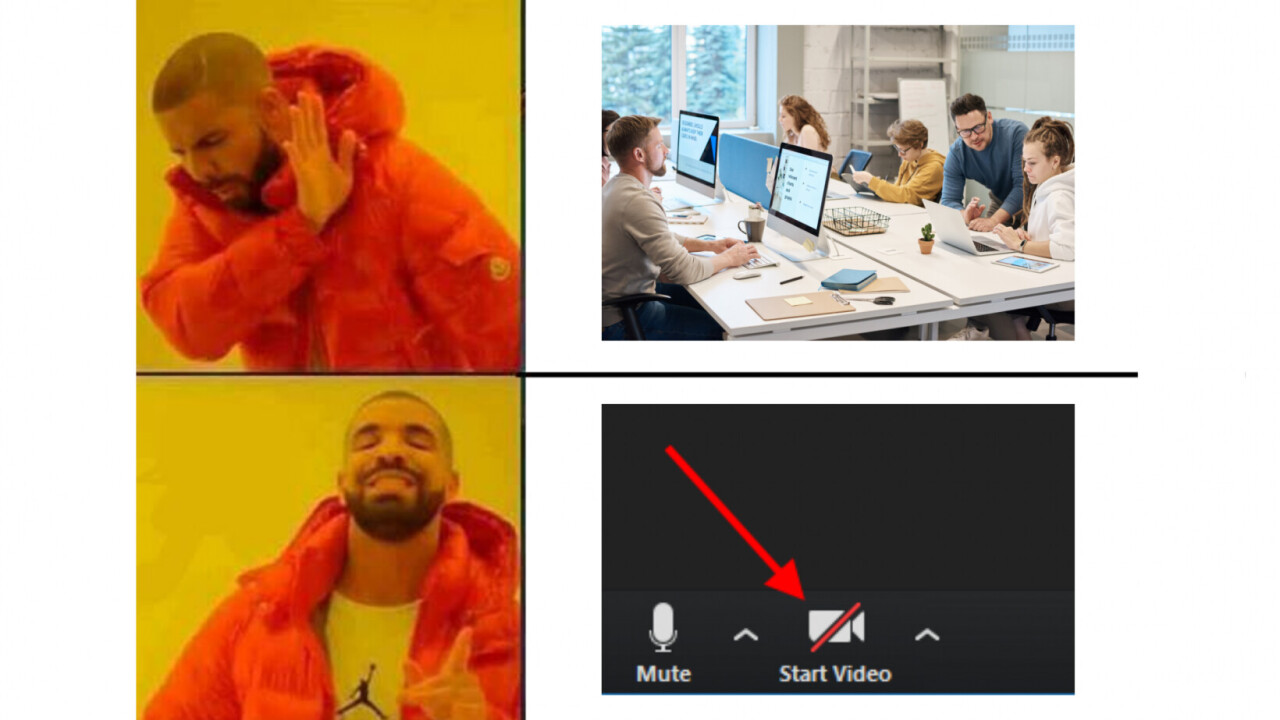
Video conferencing is making us dumber and less creative — and that’s according to science.
A laboratory study by Columbia Business School’s Melanie S. Brucks and Stanford’s Jonathan Levav found that “video conferencing inhibits the production of creative ideas.”
How’s that for a great excuse to keep your video turned off on your next Zoom call?
The study found that “video conferencing hampers idea generation because it focuses communicators on a screen, which prompts a narrower cognitive focus.”
To put that another way, the results suggest that the cognitive load used in virtual interactions hamper the amount of bandwidth we have for creativity.
Apparently, when you look at a screen, the narrowing of your vision “constrains the associative process underlying idea generation,” in which your mind branches and pulls on disparate information, forming new ideas in the process.
The study, conducted across five countries, explains: “as virtual communicators narrow their visual scope to the shared environment of a screen, their cognitive focus narrows in turn.”
But don’t sweat just yet — this doesn’t mean we should all head back to the office five days a week.
Telling Mike to unmute himself is here to stay, “but there’s a tension”
These findings back up the concerns laid out by Airbnb CEO Brian Chesky when he announced its new hybrid WFH policy last week.

His solution? Quarterly in-person meetings.
Chesky isn’t the only founder making a post-pandemic move to a hybrid WFH policy.
A survey conducted by Harvard Business Review in August 2021 said 75% of US employees reported “a personal preference for working remotely at least one day per week.” A research paper from the National Bureau of Economic Research — entitled Why Working from Home Will Stick — affirms HBR’s predictions, with an estimate that “20% of US work days will take place at home, after the pandemic ends.”
Nobody is saying you have to go back to the office
Video conferencing may make creativity more challenging, but, on the other hand, it appears to make prioritization and project management easier.
As the science says: “when it comes to selecting which idea to pursue, we find no evidence that video conferencing groups are less effective (and preliminary evidence that they may be more effective) than in-person groups.”
Unfortunately though, this isn’t universally agreed upon.
Another study conducted by Carnegie Mellon University’s Maria Tomprou et al. in March of 2021, however, suggested that videoconferencing not only hampers creativity, but “reduces collective intelligence”. Yikes.
Turning off our cameras may make us smarter and more creative in meetings
The Carnegie study suggests that the central blocker to collective intelligence and productivity in virtual communication is video access.
Their reasoning? “Teams without visual cues are more successful in synchronizing their vocal cues and speaking turns, and when they do so, they have higher CI.”
CI, or, collective intelligence, is defined here as the ability of a group of humans to work together to solve problems.
Contrary to popular opinion on the value of video in enhancing remote relationships and collaboration, Carnegie Mellon’s researchers propose that limiting time spent with your video turned on may lead to more equal and collaborative communication — as well as improved problem solving capabilities — likely because without video, there are fewer visual stimuli and less distractions.
Get the TNW newsletter
Get the most important tech news in your inbox each week.





